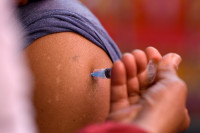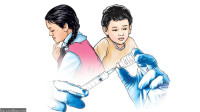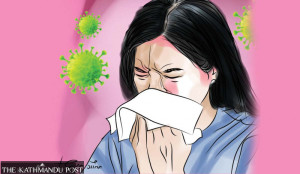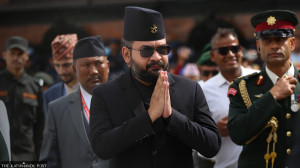Health
Stringent law fails to stop assaults on doctors
Thousands of patients suffered, as resident doctors shunned services on Wednesday.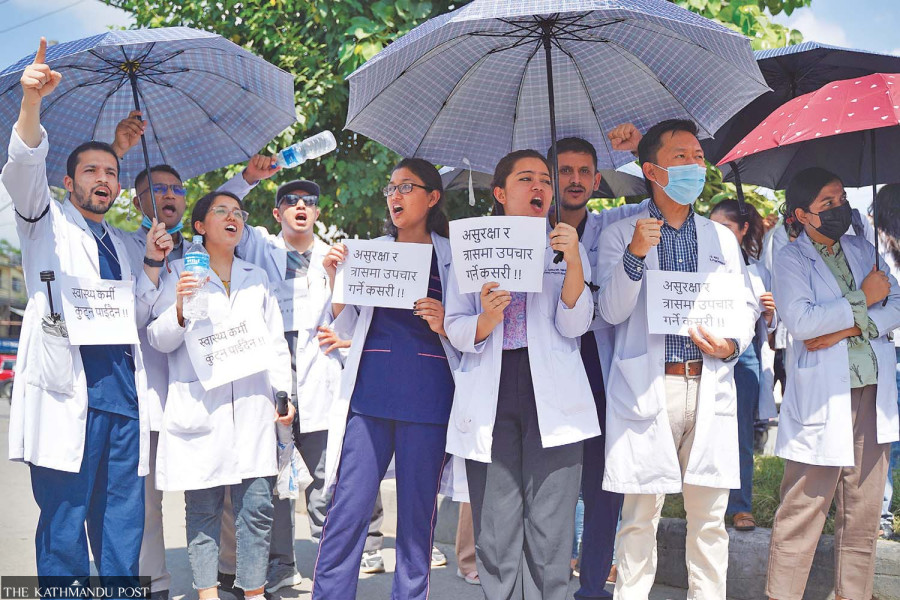
Arjun Poudel
Thousands of patients throughout the country were deprived of health care services on Wednesday, as resident doctors across the country skipped duty to protest Monday’s assault on doctors at Manipal Teaching Hospital in Pokhara.
Around 450 resident doctors serving at the Tribhuvan University Teaching Hospital (TUTH) had decided to boycott the services on Tuesday evening after learning about the assault.
But their fellow doctors serving at major hospitals and medical colleges throughout the country voluntarily boycotted services after their colleagues (resident doctors) at TUTH decided not to serve without a security guarantee.
“How can we provide care to patients when we are under constant threat of physical assault,” said Dr Arun Upreti, a member of the National Resident Doctor Association. “We cannot serve patients until we are assured safety and security.”
The problem is, senior doctors are generally more involved in academic activities and are less involved in direct patient care at big hospitals. As a result, when resident doctors shun duties, patients—both out-patient-department, in-patients and those waiting for elective surgeries—were deprived of essential services on Wednesday.
This is not the first instance of doctors being assaulted by relatives of the patients who died in the course of treatment, alleging medical negligence.
According to the Nepal Medical Association, an umbrella organisation of medical doctors and dentists, at least seven incidents of misbehaviour and physical assault on medical personnel have been recorded in the last four months. Dozens of cases of attacks on health workers and health facilities by the relatives of patients are recorded every year.
In an attempt to lessen incidents of physical assault on healthcare professionals and institutions, the government amended the Security of the Health Workers and Health Organisations Act-2066. But despite the stringent measures, violence against healthcare professionals has not declined. The amended law has a provision of a fine between Rs300,000 to 500,000 and a jail term of two to five years or both, for anyone violating the law.
On September 18, the association had called a nationwide strike to protest the assault on doctors in a Hetauda hospital. They ended the protest after signing a six-point agreement with the authorities. In the agreement, the government has promised to enforce the law effectively and arrest the preparators immediately. Some people involved in the attack were arrested in Hetauda.
“Our society is getting intolerant by the day, and people started taking the law into their own hands,” said Dr Bhagawan Koirala, chairman of the Nepal Medical Council, the national regulatory body of medical doctors. “Authorities must enforce the law effectively. Patients and their relatives should be communicated properly and health professionals should also behave responsibly.”
Due to incidents of violence against doctors and health workers, the risk increases that thousands of patients throughout the country may not get treatment, which is their constitutional right.
“Not only assaults on health workers have increased but also the incidents of revenge attacks months later have increased, and these have made healthcare workers and health facilities unsafe,” said Dr Prakash Budhathoki, spokesman of the Ministry of Health and Population. “Instead of seeking legal action, relatives of patients started to take the law into their own hands, which is a serious matter.”
Doctors’ inability to communicate properly with patients and their relatives, the trend of ill-equipped and understaffed hospitals holding serious cases for long, and healthcare facilities and doctors being subjected to huge compensations are among the reasons for the growing conflict between doctors and relatives of patients, multiple doctors the Post talked to, said.
Providing medical care has become tougher by the day, as every time something goes wrong with patients during treatment, people accuse doctors of medical negligence and resort to violence, according to Budhathoki.




 15.12°C Kathmandu
15.12°C Kathmandu
